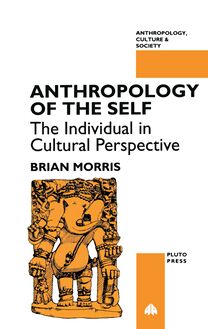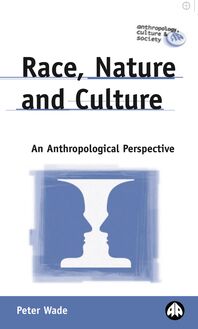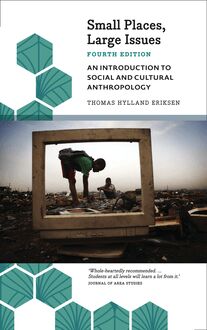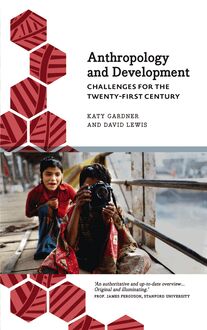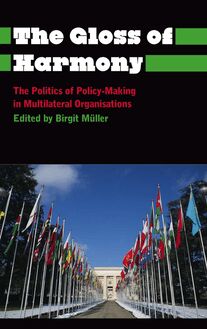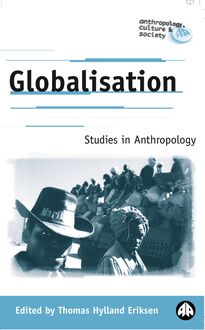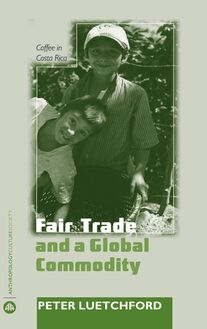-
 Univers
Univers
-
 Ebooks
Ebooks
-
 Livres audio
Livres audio
-
 Presse
Presse
-
 Podcasts
Podcasts
-
 BD
BD
-
 Documents
Documents
-
- Cours
- Révisions
- Ressources pédagogiques
- Sciences de l’éducation
- Manuels scolaires
- Langues
- Travaux de classe
- Annales de BEP
- Etudes supérieures
- Maternelle et primaire
- Fiches de lecture
- Orientation scolaire
- Méthodologie
- Corrigés de devoir
- Annales d’examens et concours
- Annales du bac
- Annales du brevet
- Rapports de stage
La lecture à portée de main
Vous pourrez modifier la taille du texte de cet ouvrage
Découvre YouScribe en t'inscrivant gratuitement
Je m'inscrisDécouvre YouScribe en t'inscrivant gratuitement
Je m'inscrisEn savoir plus
Vous pourrez modifier la taille du texte de cet ouvrage
En savoir plus

Description
Introduction
1. Production
The ecosystem
Technological processes
Access to resources
The question of 'work' in western societies
2. Distribution and exchange
Forms of Reciprocity and Redistribution
Exchange
Circulation
Market culture or market system?
3. Consumption
Defining consumption
The consumption unit
What happens within the consumption unit?
Beyond the domestic group boundaries
Producing while consuming
4. Social reproduction
Production and reproduction
5. Conclusion
Local culture and economic models
The case study. Local processes in the construction of labour/ capital relations
Models of analysis for a 'New Economic Organisation'
Work experiences and labour/ capital relations
Rethinking proletarianisation and class
Bibliography
Index
Sujets
Informations
| Publié par | Pluto Press |
| Date de parution | 20 avril 1997 |
| Nombre de lectures | 0 |
| EAN13 | 9781783718528 |
| Langue | English |
Informations légales : prix de location à la page 0,1650€. Cette information est donnée uniquement à titre indicatif conformément à la législation en vigueur.
Extrait
NEW DIRECTIONS IN ECONOMIC ANTHROPOLOGY
Anthropology, Culture and Society
Series Editors: Professor Thomas Hylland Eriksen, University of Oslo Dr Jon P. Mitchell, University of Sussex
Land, Law and Environment: Mythical Land, Legal Boundaries Edited by A LLEN A BRAMSON AND D IMITRIOS T HEODOSSOPOULOS
The Trouble with Community: Anthropological Reflections on Movement, Identity and Collectivity V ERED A MIT AND N IGEL R APPORT
Anthropology and the Will to Meaning: A Postcolonial Critique V ASSOS A RGYROU
Risk Revisited Edited by P AT C APLAN
Macedonia: The Politics of Identity and Difference Edited by J ANE K. C OWAN
Ethnicity and Nationalism: Anthropological Perspectives T HOMAS H YLLAND E RIKSEN
Globalisation: Studies in Anthropology T HOMAS H YLLAND E RIKSEN
A History of Anthropology T HOMAS H YLLAND E RIKSEN AND F INN S IVERT N IELSEN
Small Places, Large Issues: An Introduction to Social and Cultural Anthropology T HOMAS H YLLAND E RIKSEN
What is Anthropology? T HOMAS H YLLAND E RIKSEN
Anthropology, Development and the Post-modern Challenge K ATY G ARDNER AND D AVID L EWIS
Power and its Disguises: Anthropological Perspectives on Power J OHN G LEDHILL
Control and Subversion: Gender Relations in Tajikistan C OLETTE H ARRIS
Youth and the State in Hungary: Capitalism, Communism and Class L ÁSZLÓ K ÜRTI
Locating Cultural Creativity Edited by J OHN L IEP
Cord of Blood: Possession and the Making of Voodoo N ADIA L OVELL
Cultivating Development: An Ethnography of Aid Policy and Practice D AVID M OSSE
Ethnography and Prostitution in Peru L ORRAINE N ENCEL
Witchcraft, Power and Politics: Exploring the Occult in the South African Lowveld I SAK A. N IEHAUS with E LIAZAAR M OHLALA AND K ALLY S HOKANE
Power Community and the State: The Political Anthropology of Organisation in Mexico M ONIQUE N UIJTEN
Social Mobility in Kerala: Modernity and Identity in Conflict F ILIPPO O SELLA AND C AROLINE O SELLA
Negotiating Local Knowledge: Power and Identity in Development Edited by J OHAN P OTTIER , A LAN B ICKER AND P AUL S ILLITOE
Class, Nation and Identity: The Anthropology of Political Movements J EFF P RATT
Ethnic Distinctions. Local Meanings: Negotiating Cultural Identities in China M ARY R ACK
The Cultural Politics of Markets: Economic Liberalization and Social Change in Nepal K ATHERINE N EILSON R ANKIN
Bearing Witness: Women and the Truth and Reconciliation Commission in South Africa F IONA C. R OSS
Landscape Memory and History: Anthropological Perspectives Edited by P AMELA J. S TEWART AND A NDREW S TRATHERN
Race, Nation and Culture: An Anthropological Perspective P ETER W ADE
NEW DIRECTIONS IN ECONOMIC ANTHROPOLOGY
S USANA N AROTZKY
First published 1997 by Pluto Press 345 Archway Road, London N6 5AA
Copyright © Susana Narotzky 1997
The right of Susana Narotzky to be identified as the author of this work has been asserted by her in accordance with the Copyright, Designs and Patents Act 1988.
British Library Cataloguing in Publication Data A catalogue record for this book is available from the British Library
ISBN 978 0 7453 0717 6 hardback
ISBN 978 0 7453 0718 3 paperback
ISBN 978 1 7837 1883 2 PDF eBook
ISBN 978 1 7837 1852 8 ePub eBook
ISBN 978 1 7837 1853 5 Kindle eBook
Library of Congress Cataloging in Publication Data Narotzky, Susana,
New directions in economic anthropology/Susana Narotzky, p. cm. — (Anthropology, culture and society)
Includes index.
ISBN 0-7453-0717-5 (hardcover)
1. Economic anthropology. I. Series.
GN448.N37 1997
306.3—dc21
96–48054 CIP
Designed and produced for Pluto Press by Chase Production Services, Chadlington, OX7 3LN Typeset from disk by Stanford DTP Services, Milton Keynes
Printed on demand by Antony Rowe Ltd, Eastbourne
A José Antonio, sólo
CONTENTS
Acknowledgements
Introduction : Beyond Economic Anthropology
1
Production
The ecosystem
Technological processes
Access to resources
The question of ‘work’ in Western societies
2
Distribution and Exchange
Forms of reciprocity and redistribution
Exchange
Circulation
Market culture or market system?
3
Consumption
Defining consumption
The consumption unit
What happens within the consumption unit?
Beyond the domestic group boundaries
Producing while consuming
4
Social Reproduction
Production and reproduction
Social reproduction
5
Conclusion: Local Culture and Economic Models
The case study: local processes in the construction of labour/capital relations
Models of analysis for a ‘New Economic Organisation’
Work experiences and labour/capital relations
Rethinking proletarianisation and class
References
Index
ACKNOWLEDGEMENTS
Some years ago, Richard Wilson, editor of this series, suggested that I write a book on economic anthropology. The challenge was appealing because the book was meant to be both an introductory university level textbook and a thought-provoking work at the scholarly level as well. It has taken a long time for me to write a book that, I hope, comes close to the initial intentions. I have done my best and I alone am responsible for the results. Many people, however, have made this book possible often without being aware of it.
I want to thank my first teachers who contributed early on to give me a certain turn of thought: Mercedes Molleda, J.P. Kloster and Jean Feutray. I also want to thank very specially some university professors who where crucial in my development as an anthropologist: Jesús Contreras, who introduced me to economic anthropology; Rayna Rapp, who pointed to the significance of feminist and gender issues in anthropology; William Roseberry, who introduced me to a particularly enriching perspective of the Marxist tradition in anthropology.
But many other social scientists, teachers, friends and colleagues, have to be thanked: Dolors Comas, Joan Frigolé, Alberto Galván, Maurice Godelier, Marcial Gondar, Elizabeth Handman, Nieves Herrero, Ubaldo Martínez Veiga, Lourdes Méndez, Paz Moreno, Isidoro Moreno, Pablo Palenzuela, Reyna Pastor, Juan Luis Pintos, Gonzalo Sanz, all of them gave me the opportunity to develop my thoughts in seminars and discussions.
Finally, I want to thank very specially those friends who have read or discussed parts of the book: Roberto Blatt, Jesús Contreras, Gavin Smith and Ignasi Terradas. I am also deeply indebted to Richard Wilson who has been a very patient and thorough editor and without whom the book would not exist. Both his and Jeff Pratt’s suggestions have been a great help in the revision of the final manuscript.
My family, José Antonio, Bruno and Lucas, my parents, Mercedes and Norman and my sister Viviana, have been a constant source of support and happiness and many other things. I thank them all.
INTRODUCTION: BEYOND ECONOMIC ANTHROPOLOGY
First, a word of caution. This is not a book on the History of Economic Anthropology. It is not an exhaustive presentation of the theoretical perspectives that have been associated with the ‘economic’ field of study within the academic discipline of Anthropology (for a view on these see Ortiz 1983; Clammer 1985, 1987; Kahn and Llobera 1981, Moniot 1976, Roseberry 1988). Most theoretical perspectives will be clarified along the route, however.
This book intends to be a journey. It wants to bring closer to a wider public the main concepts, debates and questions that have been relevant to the understanding of how people organise themselves for the production and reproduction of the material goods and services that make life possible. Its aim is threefold: first, to provide the conceptual tools necessary to follow most of the ‘economic’ anthropology debates; second, to present some of these debates; third, to put forward my view of what the present challenges are in ‘economic’ anthropology.
In this chapter I will try to define, briefly, the scope of the term ‘economic’ in anthropology as it has developed in academic discussions during the last fifty years. This will be followed by an attempt to narrow the area of discussion to a context where local and global material processes are embedded in historical concrete social relations. More specifically, the subject of this book will be presented as the drive toward an all-inclusive approach to material, life-sustaining processes, through the use of the concept of ‘social reproduction’. The reasoning behind the emphasis on social reproduction is that it contributes to bridging dualisms such as those between micro and macro approaches, material and cultural perspectives and, more generally, between ‘economy’ and ‘society’. Indeed, these dualisms have become a major obstacle to social scientists’ understanding of life-sustaining processes.
But first let us try to get a rough idea of how anthropologists have been trying to deal with realities encountered in the field, realities that relate to the material facts of living in any society and to how these are organised through social relations in a regular although changing way.
The domain of ‘economic anthropology’ and the definition of the ‘economy’ by anthropologists has generated much debate for over fifty years. For R. Firth (1970) economic anthropology focuses primarily on resource allocation and product distribution and rests on the ‘acceptance of the view that the logic of scarcity is operative over the whole range of economic phenomena’. Moreover:
while the material dimension of the economy is regarded as a basic feature, the significance of the economy is seen to lie in the transactions of which it is composed and therefore in the quality of relationships which these transactions create, express, sustain and modify. (1970:4)
This view of the scope and method of economic anthropology termed ‘formalist’ has been criticised on the grounds that it applies theoretical criteria developed from the analysis of capitalist soc
-
 Univers
Univers
-
 Ebooks
Ebooks
-
 Livres audio
Livres audio
-
 Presse
Presse
-
 Podcasts
Podcasts
-
 BD
BD
-
 Documents
Documents
-
Jeunesse
-
Littérature
-
Ressources professionnelles
-
Santé et bien-être
-
Savoirs
-
Education
-
Loisirs et hobbies
-
Art, musique et cinéma
-
Actualité et débat de société
-
Jeunesse
-
Littérature
-
Ressources professionnelles
-
Santé et bien-être
-
Savoirs
-
Education
-
Loisirs et hobbies
-
Art, musique et cinéma
-
Actualité et débat de société
-
Actualités
-
Lifestyle
-
Presse jeunesse
-
Presse professionnelle
-
Pratique
-
Presse sportive
-
Presse internationale
-
Culture & Médias
-
Action et Aventures
-
Science-fiction et Fantasy
-
Société
-
Jeunesse
-
Littérature
-
Ressources professionnelles
-
Santé et bien-être
-
Savoirs
-
Education
-
Loisirs et hobbies
-
Art, musique et cinéma
-
Actualité et débat de société
- Cours
- Révisions
- Ressources pédagogiques
- Sciences de l’éducation
- Manuels scolaires
- Langues
- Travaux de classe
- Annales de BEP
- Etudes supérieures
- Maternelle et primaire
- Fiches de lecture
- Orientation scolaire
- Méthodologie
- Corrigés de devoir
- Annales d’examens et concours
- Annales du bac
- Annales du brevet
- Rapports de stage
